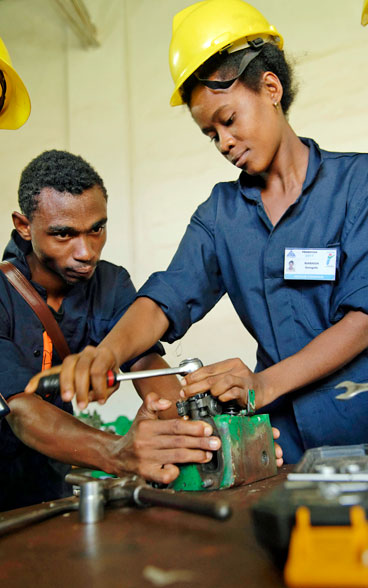Switzerland and the 2030 Agenda
The 2030 Agenda, which was adopted by all UN member states in 2015, comprises 17 SDGs and 169 targets. The Federal Council sees the 2030 Agenda as the main framework guiding Switzerland's sustainability policy. This approach is based on a decision taken by the Federal Council in 2018 and the National Strategy for Sustainable Development (NSS 2030), which was adopted in 2021. Switzerland is committed to implementing the SDGs and targets under the 2030 Agenda and promotes the sharing of experience at international level.
In 2026, Switzerland will present its third voluntary national review (VNR) on implementing the 2030 Agenda in keeping with its commitment to ensuring transparency and accountability in acting on the SDGs.


